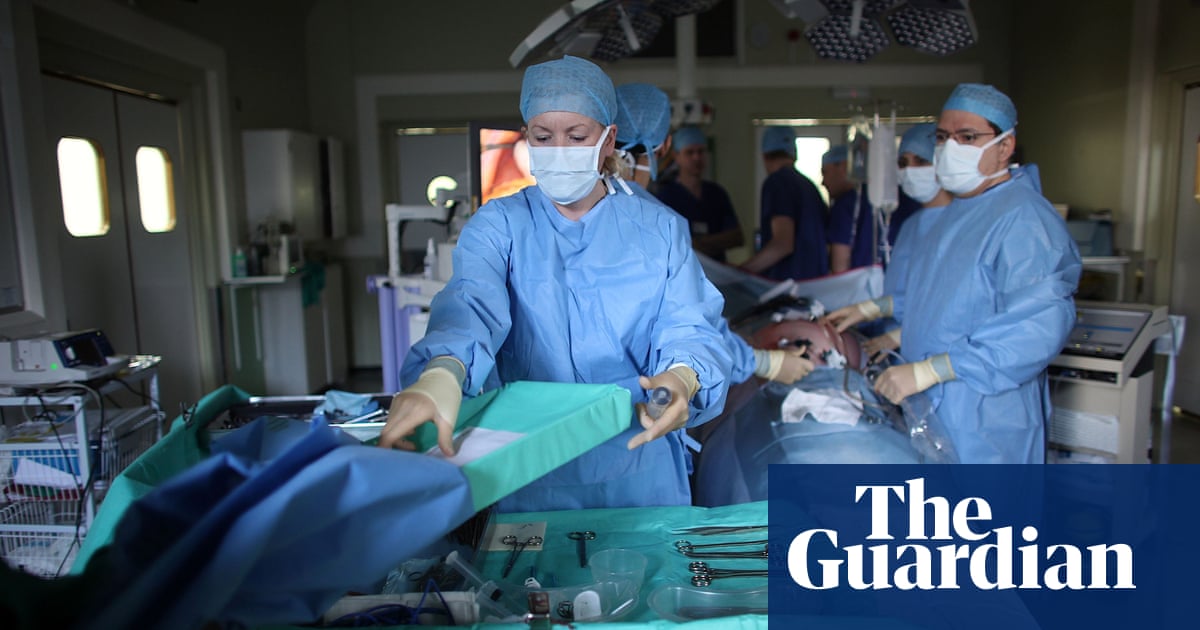Cowper's Cut 218: Gray Day approaches as problems multiply

"To believe that mere computing power and smart algorithms by themseves will generate superior healthcare is an illusion. It means failing to understand that diseases are more complex and healthcare systems are more dysfunctional than computer scientists anticipate".
Gerd Gigerenzer, 'How To Stay Smart In A Smart World: Why Human Intelligence Still Beats Algorithms'
For the past several years, I have been going on and on and on about the fictional nature of the Government's announcement of 40/48 "new hospitals".
Gradually, the national media and the Opposition has started to notice and make something of the fact that the Government is obviously not telling anything remotely approaching the truth.
A spectacular leak to Health Service Journal this week confirmed that even the eight or so genuinely new 'pathfinder' hospital redevelopment projects are unlikely to proceed on schedule, because of shortage of funding.
HSJ's Nick Carding and Annabelle Collins helpfully summarise where we are in reality: "in 2019, six of these eight trusts were announced as “ready to go” by the then-health secretary Matt Hancock in the run-up to the general election. They were due to be completed by 2025.
"In 2020, it emerged they were being delayed by at least three years, and the “pathfinders” have since been deprioritised by government, which has instead decided to focus on trying to complete eight hospital building schemes which pre-dated the programme, and accelerating 10 smaller-scale projects it hopes can be delivered more easily. These make up the programme’s first two cohorts.
"The 'pathfinders' are currently scheduled to start major rebuilding works in 2023-24 and be completed in the period 2026-28."
And this is, of course, before the UK's COLIC (cost of living inflation crisis) economy does price inflation to construction fees, wages and materials.
Waiting times: trouble in mind
A curiously anonymously-sourced Telegraph splash today describes research suggesting that the current NHS waiting list, at just under 6.4 million, may underestimate matters by half.
I generally don't highlight anonymously-sourced pieces, but towards the very end, this piece quotes the highly reliable Dr Rob Findlay of Insource.
The story also alleges that "some hospitals are cancelling entire morning or afternoon theatre sessions if only a handful of patients are booked in, to keep their utilisation rates high". This seems remarkable.
Chris Hopson new Chief Strategy Officer for NHS England
The appointment of NHS Providers boss Chris Hopson (news of which was broken here) as NHS England's new Chief Strategy Officer - a board-level position - shows us that the strategy in question is 'comms-ing it'.
So far, so Johnson Government.
This probably isn't a mistake for NHSE. Chris is a considerably talented communicator: I confess to having taught him how to use Twitter when I did some communications consultancy for NHS Providers about eight years ago. (So you can blame me for the '1/2,735' Twitter threads, if you want.)
The news for the NHS is likely to remain very bad over the coming two years until the next General Election campaign. The NHS is going to need highly effective voices making its case.
At NHS Providers, Chris also spent serious time on the road getting close to his membership and understanding their issues and concerns in detail.
He is not, however, in any way what I would define as a strategist. Consider his work back in 1992 with Danny Finkelstein to propose 'Social Democrats for John Major'. I mean, it's many things, is that - but none of those things is strategic.
He is now clearly going to be required to go out and bat for the NHS overall (which is how NHS England sees its role), just as he has successfully done for the provider sector - thus managing the slightly remarkable feat of keeping a second membership representative body alive alongside the NHS Confederation. (The Confed-Providers 'will-they-will-they?' merger dynamic now obviously comes back into play, but that's a business opportunity for another time.)
But much of his work for NHS Providers was, frankly, what a classy director of communications would have done (or steered).
There are weaknesses, too. It was usually extremely obvious when Chris was either for (Jim Mackey) or against (Simon Stevens) a national system leader, and some of Chris's 'anonymous' briefings to the media against people were hilariously obviously him. He is not a subtle man, which most strategists are.
NHSE comms will now be in line management reporting to him. How that works out will be ... interesting.
Likewise, his past run-ins with senior figures in Government will set his 'government liaison' work on an interesting footing.
NHS England, meanwhile, is planning for GPs to take on a shedload more 'advice and guidance' work in its latest elective planning guidance, as Pulse revealed. "plans for this year’s 10% increased elective activity target (are) to be predominantly achieved through increased GP advice and guidance".
It's a good thing GPs aren't really all that busy of late, then.
Sam Jones' portfolio extended
The extension of NHS alumnus Samantha Jones' portfolio in 10 Downing Street was picked up by The Times' Patrick Maguire and The Guardian. She is now, as Maguire observed, effectively running an Office of the Prime Minister.
I can only with Sam the very best of luck with this. She's smart, and knows that Mr Johnson doesn't believe in anything and wouldn't recognise loyalty if it bit him on the Big Dog. She might well enjoy this FT interview with constitutional and political historian Peter Hennessy.
Major cover-up by NEAS alleged
A major Sunday Times piece alleges that the North East Ambulance Service repeatedly colluded to cover up information about avoidable deaths its service caused. Witness statements were changed and key evidence not disclosed, it reports.
Assuming this is correct (and the ST has good lawyers), it lends ugly and timely corroboration to former Health Secretary and Commons Health Select Committee chair Jeremy Hunt's allegations about deficient NHS culture and being a "rogue system" in his new book 'Zero' (see 'Recommended and required reading' below).
Shifting tech tonic plates

Sky News reported this week that Google are being sued for using 1.6 million NHS patients' data from the Royal Free Hospital in 2015 without their consent of knowledge. Their tech reporter Alex Martin has been following this story since 2017. The Royal Free is not a party in this lawsuit.
The lawsuit is being brought by Andrew Prismall, and alleges that Google and DeepMind "obtained and used a substantial number of confidential medical records without patients' knowledge or consent".
My tendency to have some limited symathy for those concerned about medical data privacy is tempered by noting that this action "is being funded by Litigation Capital Management Limited, an asset management company that focuses on funding legal claims", and that notorious SLAPPers Mishcon De Reya are the claimant's lawyers.
Perhaps both sides could lose?
Workforce woes
In some widely mis-read data this week, the Nursing and Midwifery Council pointed out two conflicting trends. There is a rising number of nurses on the workforce register, but an increasing number are leaving the NHS.

Health But Social Care Secretary Sajid 'The Saj' Javid was quick to call the win for the Government, claiming to be "pleased to see the highest ever number of nurses, midwives and nursing associates on the NMC register. We are growing the workforce to help tackle the Covid backlog, and we are over halfway to delivering 50,000 more nurses in the NHS".
The Nuffield Trust's Billy Palmer pointed out this chart, noting that it "highlights why the NHS needs to be competitive internationally and domestically (with private sector) to increase nurse numbers. Compared to two years prior, the proportion joining from overseas has increased (24% to 38%); whereas the contribution from the private sector has fallen (29% to 22%). Obviously joiners only half(ish) of the equation (retention is important!)"
Billy also noted, "some nurses will retire, some nurses circumstances will change, but we shouldn't just accept - as the latest NMC data suggest - literally thousands leaving because of stress, workforce culture, disillusion with quality of care being provided. We explored leavers previously. Message: ignore reasons for leaving at your peril. [NB, to estimate likely numbers leaving citing those reasons, I've assumed reasons given by 6k nurses responding to the survey are representative of all 21k leavers]."
This graph from the NMC publication, based on the NHS's increasing reliance on overseas nursing, is particularly concerning.
Meanwhile, the pensions issue continues to work its anti-magic.

This story in the Telegraph points out further blunders being made in calculations regarding doctors' pensions.
And the BMA's Dr Tony Goldstone flagged why the increase of Consumer Price Inflation to 9% is going to be another major problem in this cogent Twitter thread.
Meanwhile, The Guardian's Denis Campbell had two good stories: the first highlighting that doctors trained overseas are more likely to be struck off after disciplinary proceedings at which they are not represented by lawyers.

Again on overseas medics, the second of Denis's pieces points out the anomalies about Home Office 'leave to remain' regulations, in relation to GP training.

Also on workforce, former cancer Tsar Professor Sir Mike Richards told today's Times that the NHS should introduce more junior staff to do administraive and support work in hospitals, and allow consultants to do more work such as reading scans from home in a bid to boost productivity and help delay or prevent the oncoming likely retirement of 21,000 doctors later this year. Given the Cabinet's negative noises about working from home, this is fascinating timing from Professor Richards.
A Gray dawn rises
This week should see the publication of the long-awaited full Sue Gray report. This is set to compound the Government's issues. Sky News' reliable Sam Coates reports that the meeting between Miss Gray and the Prime Minister about the report was called at the PM's behest, by one of his staff, and not (as first briefed to the media) by her.
That's interesting.
And given the probity of this administration, surely only the most devout of cynics would think that the notoriously sure-footed and high-performing Metrapolitan Police's decision to issue no further fines for the Downing Street/Whitehall illegal parties, including to the PM, was in any way driven or influenced by Bas Javid (Sajid's brother) being a Deputy Assistant Commissioner of the Met.
BMA review
The BMA this week published its reviews of the Government's pandemic performance. The first looks at preparation; the second at the impact on doctors. Three more reports are to follow: on healthcare delivery during the pandemic; the public health response's effectiveness; and the pandemic's impact on public heath and inequalities.
Streeting: fighting man
'Is Wes Streeting the saviour Labour desperately needs?' reads a thoroughly odd FT headline over this interesting interview-cum-profile of the shadow health secretary.
It is worth reading, though - here, as elsewhere, Streeting comes across as a bright and intriguing character, who is not tribally Labour.
The journalistic belief in Labour's need for a neo-Blair is intriguing in its persistence. I'm unconvinced. By the time we get to the end of this Parliament, I suspect the image of a somewhat dull, safe-pair-of-hands, chairman-of-the-board figurehead might suit the Labour Party's current leader rarther well (always assuming Durham Police don't fine him for eating while electioneering).
It's easy to forget that Sir Keir Starmer has turned Labour around from a highly messy position to becoming a credible opposition within just two and a half years, and done so in the middle of a pandemic.
I doubt he'll mind being under-estimated.
The Attack Of The Crap Right continues
'Cut' has been highlighting the Attack Of The Crap Right on the NHS for some months: it continued this week with the usually-sensible Liam Halligan's dim Telegraph piece. Halligan basically argues 'something must be done, but I;ve no idea what it is'. It is too nothing to even qualify for this column's BOTW slot.
Health Foundation chief executive Dr Jennifer Dixon has this shrewd rejoinder to this dim right-wing Jeremiad genre in today's FT. It highlights how "OECD data show the UK spent £3,420 per person a year on healthcare in 2019, France £4,010, the Netherlands £4,360 and Germany £5,000. Consider how that differential accumulates over decades.
"Capital spending is less than half that in Germany, Netherlands and Denmark. Germany has 47 per cent more doctors per head, 70 per cent more nurses and over 200 per cent more beds.
"These reflect political choices, not what is affordable".
Cronyvirus and coronamillions update
HSJ's sharp-eyed Henry Anderson spotted that UK Health Security Agency boss Dame Jenny Harries wrote to the Commons PAC announcing that it has settled a dispute with Oxford Nanopore Technology over Covid19 testing capacity for £50 million of taxpayers' money.
Spinning Jenny wrote, "On 30 July 2020, DHSC entered into a £106 million contract with ONT (exclusive of VAT) for the supply of LamPORE testing technology, a swab or saliva test for COVID-19. Responsibility for management of the contract transferred to the UK Health Security Agency on 1 October 2021.
"Although both NHS England and Public Health Scotland had expressed interest in LamPORE, following a pilot phase both subsequently decided that they had no future anticipated testing requirement for LamPORE, as they were well served with other technologies. In the circumstances DHSC no longer needed all of the test capacity and terminated the contract.
"Following Without Prejudice discussions with ONT, we have reached agreement to a settlement of £50 million, exclusive of VAT (£60 million in total) following approval by the Chief Secretary to the Treasury.
"The settlement figure was arrived at after exhaustive discussions and our audit of stock held by ONT. It is less than half the full contract value of £106 million (ex. VAT) and is a significant reduction on the damages claimed by ONT at the outset of Without Prejudice discussions."
So that's all right, then. Isn't it? DHBSC drops another turd in the taxpayer's pocket, yet no consequences ensue for anybody 'responsible' there. Be they officer or gentleman.
I'm old enough to remember when the UK was allegedly desperate to expand its testing capacity.
The Alan comeback
Save for our hero telling us he was heading to the USA to give another crypto-shilling speech, sucking up to Foreign Secretary Liz 'Cheese Import Disgrace' Truss's latest effort to break the EU withdrawal agreement and endorsing an odd Javid tweet about more nurses being on the NMC register, The People's Partridge has been slacking off in the 'who, me, trying for a comeback?' stakes this week.
Presumably this is because he's hard at it on the ... book (minds like sewers, you lot: my kind of crowd).
Alan really must try harder (and undoubtedly will).
Recommended and required reading
Jeremy Hunt's book 'Zero: Eliminating Unnecessary Deaths In A Post-Pandemic NHS' was published this week. Profits go to his charity, Patient Safety Watch. It is a good read. I've reviewed it for BMJ, and will post the link here once it's published.
Louella Vaughn's comment piece on the GMC's proposals for updates to 'Good Medical Practice' is considered and clear.
The Economist's 1843 magazine has a good long read on the social and psychological consequences of the pandemic.
Palantir (COI declaration - for whom I sit on an advisory board) are definitely making a media push, as this ST profile of their chief executive shows.
This review of the Institute For Government's Hannah White's new book 'Held In Contempt' is a bracing read.



